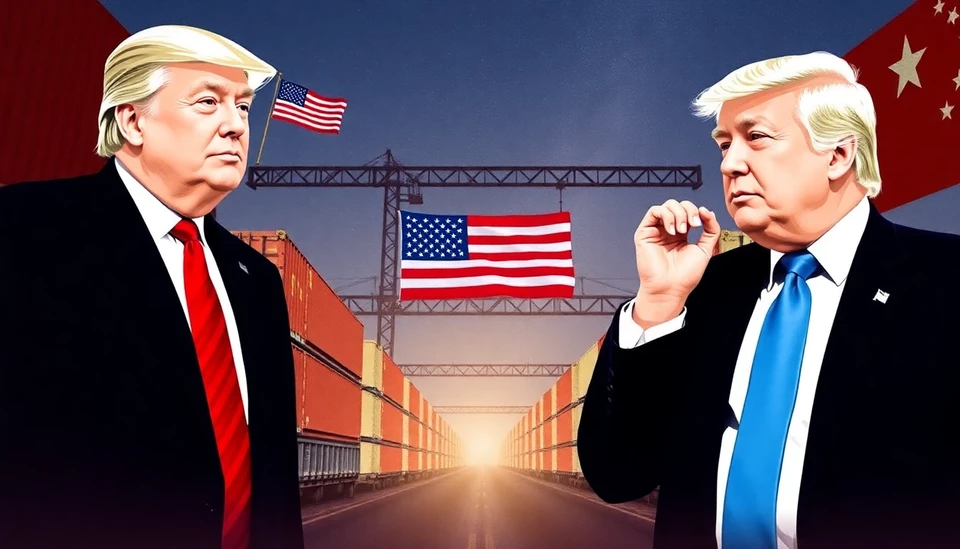
In a significant development that could reshape trade dynamics across North America and Asia, recent reports indicate that former President Donald Trump is poised to impose tariffs on a wide range of goods imported from Mexico and Canada. This decision is not only expected to profoundly impact these neighboring countries but also exert unexpected pressure on various Asian allies, sending shockwaves through international trade networks.
Sources reveal that the proposed tariffs, rumored to be as high as 25%, have been a point of contention within Trump's inner circle. Advocates for the tariffs argue that they are necessary for protecting American workers and industries from what they perceive as unfair competition and trade practices. However, critics warn that such measures could backfire, causing retaliatory tariffs that would cripple numerous sectors and further exacerbate inflation in the United States.
One of the prominent voices against this tariff strategy is the automotive sector, which has expressed grave concerns that increased costs for steel and aluminum imports from Canada and Mexico would lead to significant price hikes on American-made vehicles. Stakeholders fear that this would not only hurt sales but also disrupt the entire supply chain of the automotive industry, which relies heavily on cross-border trade and just-in-time delivery systems.
Furthermore, analysts suggest that Asian countries like Japan and South Korea could be caught in the crossfire as these tariffs may compel them to reconsider their trade strategies with the U.S. A shift in tariffs could give newfound leverage to nations like China, who may exploit the situation to enhance their influence in an already delicate geopolitical landscape. As Trump’s administration recalibrates its approach to trade, the potential for increased tensions between the U.S. and its Asian partners looms large.
Economists warn that Trump’s tariffs could intensify the ongoing trade war with China, as Beijing could view these actions as a signal to ramp up its own tariff measures or adopt economic countermeasures in response. The risk of a tit-for-tat scenario erupts concerns amongst experts regarding the potential escalation of trade disputes that may spiral beyond control.
As the debate continues, the broader implications of Trump's tariff strategy are becoming increasingly clear. Business leaders and policymakers are tasked with weighing the immediate benefits of protecting domestic interests against the potential long-term effects on international relationships, economic growth, and consumer prices.
In light of these developments, the upcoming months will be crucial for U.S. trade policies and their expected ramifications. Just how far Trump will take these proposed tariffs remains uncertain, yet the conversation around the impact on North America and its Asian allies is gaining momentum. As all eyes turn to Washington, the world watches closely, poised for potential shifts in global trade alignments.
#TrumpTariffs #TradeWar #NorthAmerica #AsianAllies #Economics #AutomotiveIndustry #GlobalTrade #Inflation #China #USPolitics
Author: Laura Mitchell




